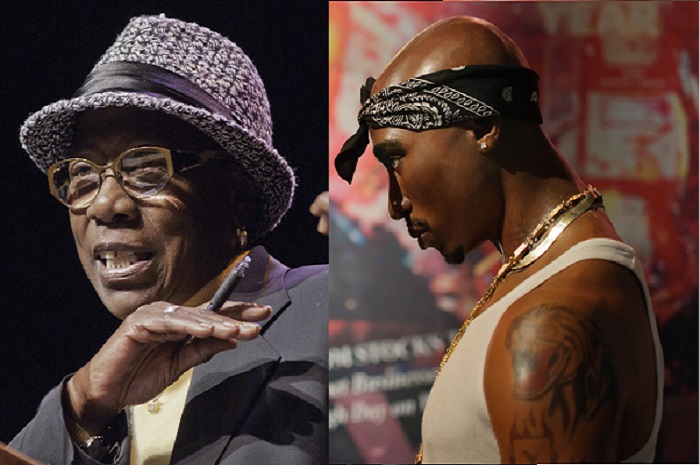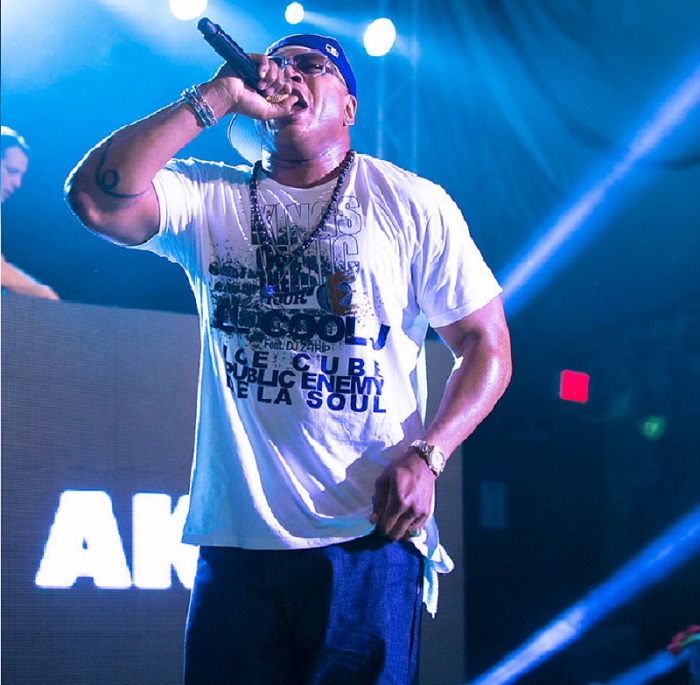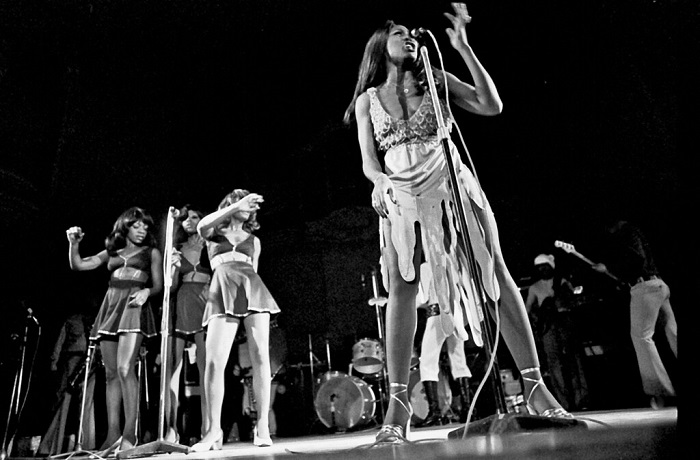
As Rap Artists Detail Complex Relationships With Their Mothers, Street Life And The Pursuit Of Success — Tupac’s ‘Dear Mama’ Endures
Tupac’s ‘Dear Mama’ endures as rap artists detail complex relationships with their mothers, street life and the pursuit of success.
In hip-hop music, it sometimes seems as if songs to and about mothers are common enough that audiences might take them for granted.
As someone who studies hip-hop and how it shapes and is shaped by society and culture, I don’t believe rap has ever abandoned the idea that a song for your mother or mother figure is expected of any artist.
The past few years have seen many notable contributions to this genre. Two of my favorites are 7xvethegenius’s 2019 song “Black Soul,” on which she talks about the death of her grandmother and not wanting to let her mother down, and Tierra Whack’s 2021 “Cutting Onions,” which is about mourning the loss of her grandmother.
Of the long list of lyrical tributes to mothers that rap artists have recorded over the past 50 years, perhaps none has had as an enduring impact as Tupac Shakur’s “Dear Mama.” The song peaked at No. 9 on Billboard’s Hot 100 in 1995 and has since generated more than 257 million streams on Spotify. For comparison, Kanye West’s “Hey Mama” had only a fraction of that at 85 million streams on Spotify.
The popularity of the “Dear Mama” song will undoubtedly continue to grow now that it shares the same title as an FX docuseries about Tupac and his mother, Afeni Shakur, directed by Allen Hughes, the co-director of “Menace II Society” and “Dead Presidents” with his twin brother, Albert.
The director also had a violent history with the rapper, which resulted in Tupac serving 15 days in jail for assault in 1994.
Contentious relationships may be a hallmark of Tupac’s brief and prolific career. “Dear Mama,” the documentary series, narrates the ins and outs of the relationship he had with his mother. The docuseries deals with, among other things, Afeni’s radical politics, her involvement with the Black Panther Party and the influence her politics had on Tupac’s life and his music. “Dear Mama,” the song, was released in 1995, the year before the rapper was murdered in Las Vegas.
Sounds across generations
If the song has intergenerational appeal, that is easily understood by the fact that in it, Tupac raps over a sample of Joe Sample’s 1978 “In All My Wildest Dreams.” And for the song’s hook, singers borrow from the 1974 song dedicated to mothers, “Sadie,” by The Spinners.
Tupac’s autobiographic ode to his mother showcases the rapper’s storytelling ability with vivid and vulnerable details of their shared struggles and battles. His family’s poverty, his mother’s struggles with drug addiction, his defiance of authority and the love they shared through it all are the foundational lyrical elements, delivered with the signature punchy grit of Tupac’s singsong cadence. He intones to his “Black Queen, Mama,” and offers variations of “There’s no way I can pay you back / but my plan is to show you that I understand. / You are appreciated.” to punctuate each verse.
Below are some of my other favorite rap songs with lyrics devoted to mothers, grandmothers, aunts and other mother figures who raised the artists through the struggles they faced. Some feature the artist addressing their mothers directly in the style of “Dear Mama.”
Because my academic and artistic work is about “dope,” and hip-hop music as one of its forms, it’s worth pointing out how, in many of these harrowing tales, the men rapping offer similar reasons for their involvement in the alternate economies of America’s illicit drug sales. In most cases, they narrate their activities as a way to achieve a version of the American Dream, which in many cases includes securing a better standard of living for their mothers.
Tupac himself did this in “Dear Mama” when he wrote:
“I ain’t guilty, ‘cause even though I sell rocks / it feels good putting money in your mailbox. / I love payin’ rent when the rent is due. / I hope you got the diamond necklace that I sent to you.”
In Above the Law’s “Black Superman,” which predates “Dear Mama,” the group struck a similar chord:
“I got my mama up outta there. / Because y’all motherf—ers just don’t care. / Uh, you really wanna know why I sold scum. / Because my mama, to me, comes number one. / Now you sucker motherf—ers don’t understand, / but to my mama, I’m her real Black Superman.”
Tupac is far from the only rapper who wrote lyrics about using proceeds from selling illicit drugs to shower his mother with material gifts.
In “I Made It,” Jay-Z, who was featured in a 2021 article titled “How Jay-Z went from teen drug dealer to the world’s richest musician,” wrote about how he couldn’t believe he went from his “earlier stages to bein’ on stages.”
“Now your lil misfit / make sure every day is Christmas. / Write out your wish list. / Sixes, wrist is / glistening. / You don’t even like jewels. / But you could get missing anywhere you like to.”
Along similar lines, and using a similar title, Benny the Butcher created a 2020 song titled “Thank God I Made It.” In it, he raps about navigating racism and how it affected his life choices, but still being indebted to his mother for dealing with all the stress he caused as a troublesome boy – in many ways echoing how Tupac spoke of how he would “reminisce on the stress” he caused his mother and how “it was hell huggin’ on my mama from a jail cell.”
“I was raised by a woman, so shout out to single mothers / who had to teach their teenage boys to use rubbers. / Getting calls home from school, then wondering, why she bugging. / ‘Cause that’s just more stress to add on top of struggling. / Few things I wanna show you, cause I feel like I owe you. / You made me the man I am today. I never told you. / Dressed me in hand-me-downs cause you couldn’t afford Polo. / How it feel to see your two oldest boys’ names on logos?”
Some artists offer a candid look at the nuanced interactions between mother and son and their respective vices.
In “Life of the Party,” a 2021 song by Ye, the artist formerly known as Kanye West, and Andre 3000, Andre 3000 prayerfully addresses Ye’s mother, Donda West, who passed away in 2007, with hopes that both mothers can meet and still offer motherly advice from the afterlife.
“Miss Donda, you see my mama, tell her I’m lost. / You see, she’d always light a cigarette. We’d talk. I would cough. / Exaggerating a little bit so she’d get the point / Trying to get her to stop smoking. I would leave and fire up a joint.”
While many artists have devoted lyrics to describing the complex relationships they have with their mothers, others have offered more mundane yet vivid descriptions of the everyday lives their matriarchs lead at home.
In “The Weather,” a 2023 song by Black Thought & El Michels Affair, Black Thought raps about his grandmother:
“Minnie be grinning knowing I done spent a day of penny pinching and sinning. / See her in the kitchen cooking fish or chicken depending / on what day it is. / If I’m staying there, then yeah, that’s just the way it is. / If she say it is. / In Minnie crib, the time froze. / After sundown, you keep them curtains and the blinds closed.”![]()
A.D. Carson, University of Virginia
A.D. Carson, Assistant Professor of Hip-Hop, University of Virginia
This article is republished from The Conversation under a Creative Commons license. Read the original article.




